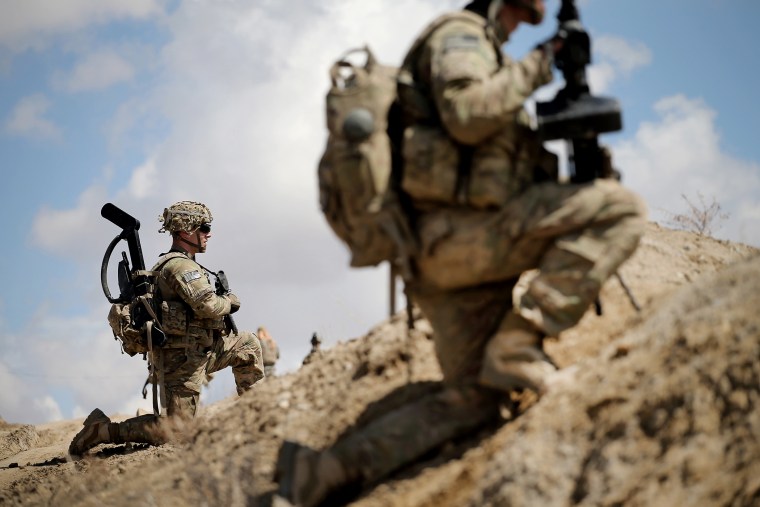The House is set to vote as early as Wednesday on legislation that would repeal a law that authorizes the military to use force against the perpetrators of the terrorist attacks of Sept. 11, 2001.
Passed just days after the attacks, the 60-word Authorization for Use of Military Force (AUMF) has been used to justify everything from indefinite detention at Guantanamo Bay to drone strikes in Yemen.
"It's been 13 years, and I think it's time for this AUMF to be repealed," California Democratic Rep. Adam Schiff, the author of the repeal proposal, told msnbc Wednesday. "The current AUMF is becoming legally precarious and increasingly outdated, and I think that it's incumbent on Congress and the administration to determine an end to this AUMF, and determine what kind of successive authority may be necessary."
The measure is set to be voted on as part of the defense authorization bill under consideration in the House.
President Barack Obama said last year that it was time to "to refine, and ultimately repeal" the AUMF, with the war in Afghanistan coming to a close. Lawmakers on both sides of the aisle have raised repealing the law or altering it so that it reflects the reality that the Obama administration is using force against Al Qaeda-linked groups that didn't even exist when the towers fell. Civil libertarians worry that a new authorization could broaden the so-called "war on terror" rather than end it.
Schiff's proposal would sunset the 2001 AUMF next year, forcing Congress to reconsider what authority, if any, is necessary. Last year a similar proposal from Schiff garnered almost 200 votes in the House.
Lawmakers in the Senate are also taking a look at the 2001 AUMF. The Senate Foreign Relations Committee held a hearing Wednesday that suggested the shadow war against Al Qaeda and like-minded groups could continue, even without explicit authorization from Congress.
Obama administration officials argued that even without the 2001 AUMF, the president has the authority to use military force against groups that pose an "imminent" threat to the United States. That would appear to include operations such as drone strikes against Al Qaeda affiliates in countries like Yemen.
"If the 2001 AUMF was undone, can the president be able to carry out the activities that he's carrying out right now?" asked Tennessee Republican Sen. Bob Corker at the hearing.
"Yes I believe he could, Sen. Corker," said Mary Mcleod, the deputy legal adviser to the State Department.
"Then we, the Congress, don't need to be involved in this subject at all," Corker said.
When New Jersey Democratic Sen. Robert Menendez, chairman of the powerful Senate Foreign Relations Committee, asked what powers the administration would lose if the 2001 AUMF were repealed, neither Mcleod nor Stephen Preston, general counsel for the Department of Defense, could give a clear answer.
When administration officials repeated that they were looking forward to "engaging" with Congress on what to do about the 13-year-old authorization, Virginia Democratic Sen. Tim Kaine seemed to grow frustrated that the officials couldn't state more directly what the administration had in mind.
"That's why we're here! that's why we're doing the hearing! we're engaging!" Kaine said.
"I think we saw the administration's feet held to the fire and the open-endedness of its commitments exposed," said Steven Vladeck, a law professor at American University. "Part of the problem here is we are having conversations that are public based on facts that are not public."
